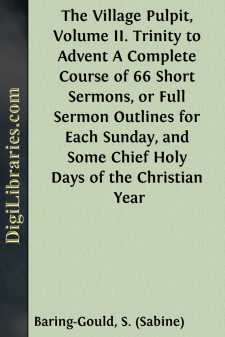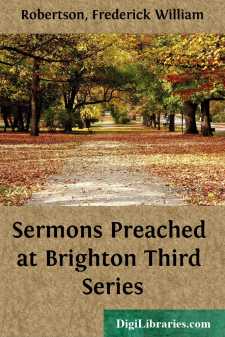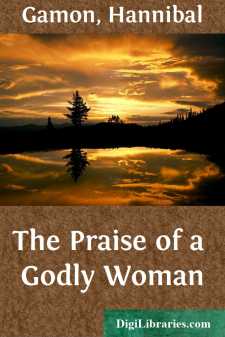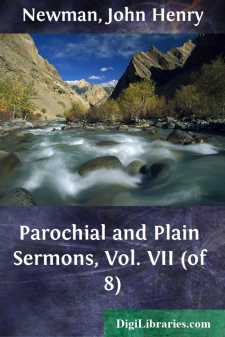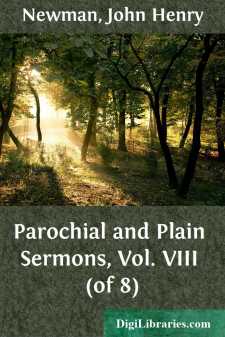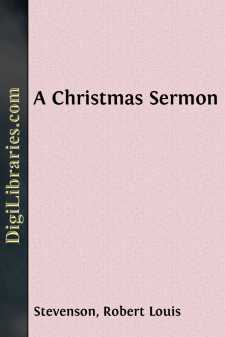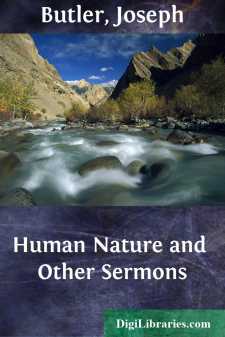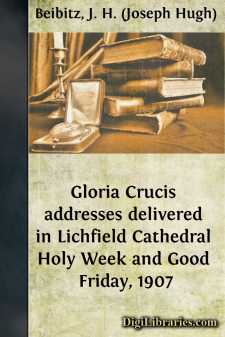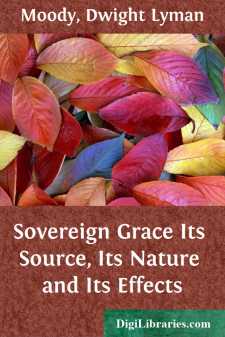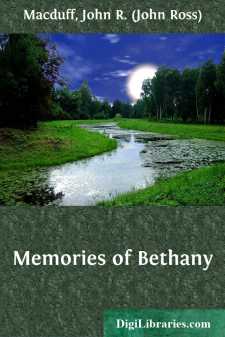Religion
- Agnosticism 2
- Antiquities & Archaeology 21
- Atheism 12
- Biblical Criticism & Interpretation 15
- Biblical Meditations 3
- Biblical Reference 1
- Biblical Studies 11
- Buddhism 8
- Christian Church 52
- Christian Education 5
- Christian Life 26
- Christianity 60
- Cults 2
- Devotional 6
- Eastern 2
- Education 4
- Eschatology 1
- Ethics 3
- General 60
- Gnosticism 1
- Hinduism 15
- History 28
- Holidays 10
- Inspirational 1
- Islam 8
- Judaism 3
- Leadership 1
- Meditations 3
- Monasticism 1
- Mysticism 11
- Philosophy 4
- Prayer 26
- Prayerbooks 5
- Religion & Science 12
- Sermons
- Spirituality 53
- Theism 2
- Theology 17
- Theosophy 15
Sermons Books
Sort by:
INTRODUCTION.—An ancient writer informs us that when the Egyptians named their Greatest God who was over all, they cried thrice, "Darkness! Darkness! Darkness!" And when we come to speak of the great mystery of the Holy Trinity, the utmost we can do is to repeat their cry, and say, "Darkness! Darkness! Darkness! In the name of the Father—Darkness, and of the Son—Darkness; and of the...
more...
“Even so the tongue is a little member, and boasteth great things. Behold, how great a matter a little fire kindleth! And the tongue is a fire, a world of iniquity: so is the tongue among our members, that it defileth the whole body, and setteth on fire the course of nature; and it is set on fire of hell.”—St. James iii. 5-6. In the development of Christian Truth a peculiar office was assigned to...
more...
by:
Hannibal Gamon
Honovrable Sir, Although it bee true (which a worthy Diuine obÃ
¿erueth) that formall Hypocrites are heartned and hardned in their lewd courÃ
¿es & falÃ
¿e conceits of happineÃ
¿Ã
¿e, when they heare more infamous Sinners than themÃ
¿elues, gloriouÃ
¿ly and flatteringly commended at their Deaths; yet we need not feare any Ã
¿uch bad effect by the...
more...
SERMON I. The Lapse of Time. "Whatsoever thy hand findeth to do, do it with thy might; for there is no work, nor device, nor knowledge, nor wisdom, in the grave, whither thou goest."—Eccles. ix. 10. Solomon's advice that we should do whatever our hand findeth to do with our might, naturally directs our thoughts to that great work in which all others are included, which will outlive all...
more...
SERMON I. Reverence in Worship. "Samuel ministered before the Lord, being a child, girded with a linen ephod."—1 Samuel ii. 18. Samuel, viewed in his place in sacred history, that is, in the course of events which connect Moses with Christ, appears as a great ruler and teacher of his people; this is his prominent character. He was the first of the prophets; yet, when we read the sacred...
more...
I An unconscionable time a-dying—there is the picture ("I am afraid, gentlemen,") of your life and of mine. The sands run out, and the hours are "numbered and imputed," and the days go by; and when the last of these finds us, we have been a long time dying, and what else? The very length is something, if we reach that hour of separation undishonoured; and to have lived at all is...
more...
by:
Joseph Butler
INTRODUCTION. Joseph Butler was born in 1692, youngest of eight children of a linendraper at Wantage, in Berkshire. His father was a Presbyterian, and after education at the Wantage Free Grammar School Joseph Butler was sent to be educated for the Presbyterian ministry in a training academy at Gloucester, which was afterwards removed to Tewkesbury. There he had a friend and comrade, Secker, who...
more...
INTRODUCTION These addresses, delivered in Lichfield Cathedral in Holy Week, 1907, are published at the request of some who heard them. It has only been possible to endeavour to reproduce them in substance. The writer desires to express his obligations to various works from which he has derived much assistance, such as, above all, Du Bose’s Gospel in the Gospels, Askwith’s Conception of Christian...
more...
THE FOUNTAIN OF GRACE. HERE are some words with which we have been familiar from our infancy up, and probably there are few words in the English language that are so often used as this word “GRACE.” Many of you at your table “say grace” three times a day. You seldom go into a church without hearing the word mentioned. You seldom read any part of the New Testament, especially the Epistles,...
more...
John XI. 1.—“Now a certain man was sick, named Lazarus, of Bethany, the town of Mary and her sister Martha. (It was that Mary which anointed the Lord with ointment, and wiped His feet with her hair, whose brother Lazarus was sick.) Therefore his sisters sent unto Him, saying, Lord, behold, he whom Thou lovest is sick. When Jesus heard that, He said, This sickness is not unto death, but for the...
more...


